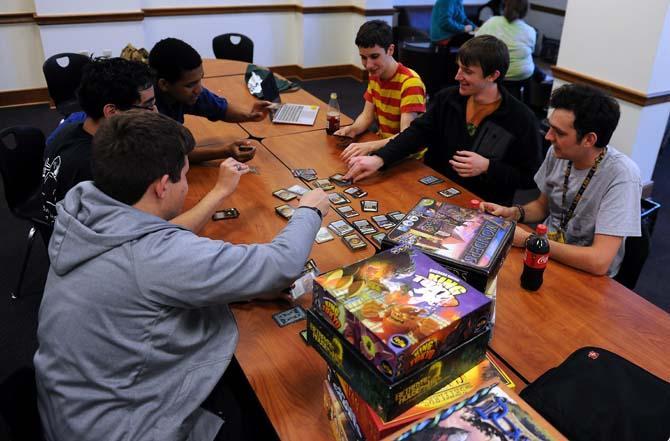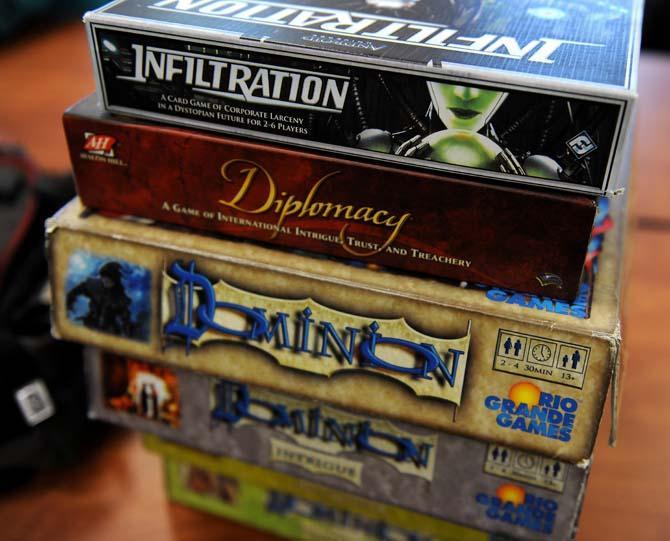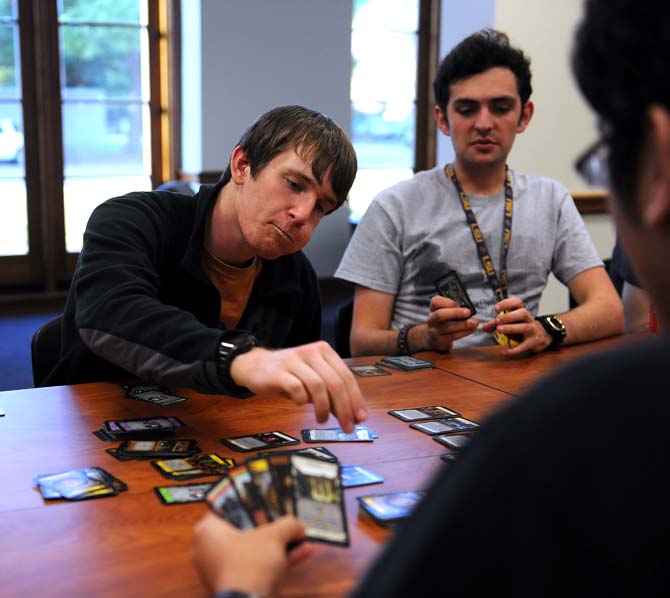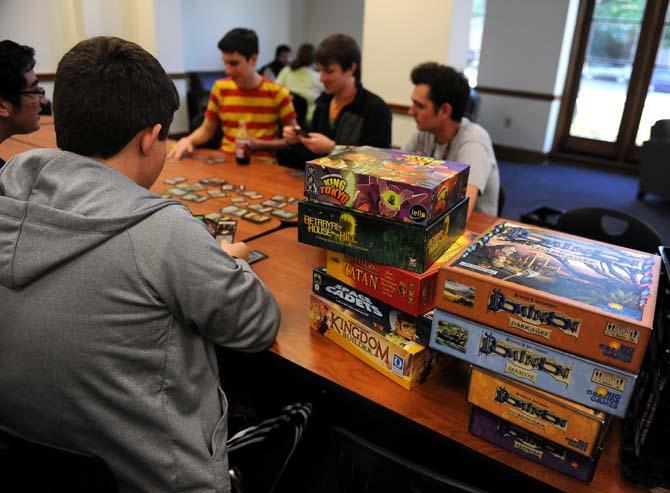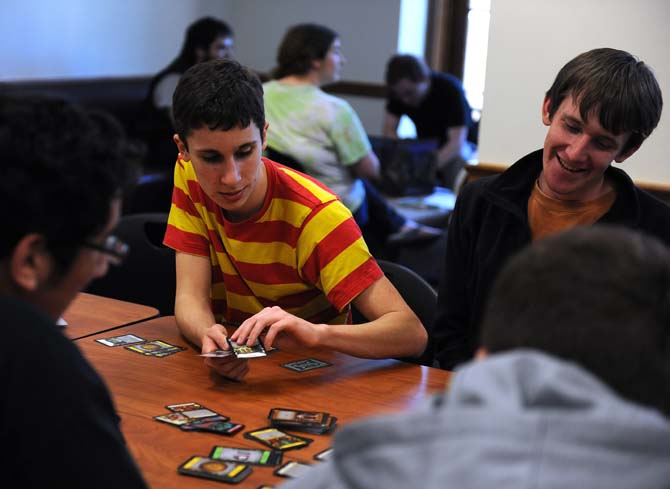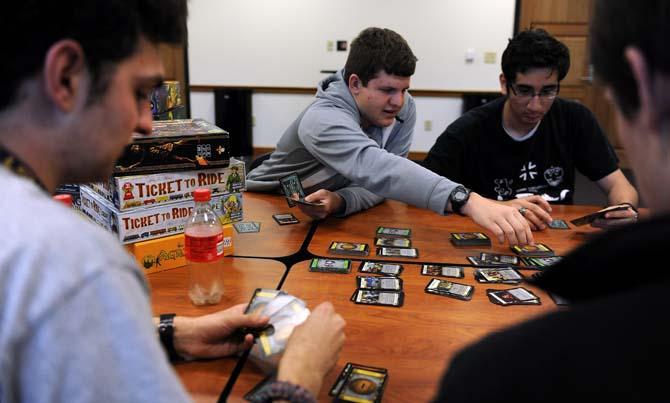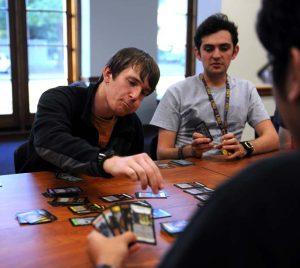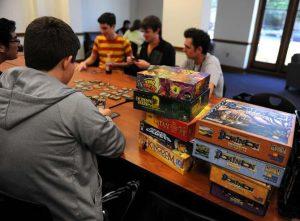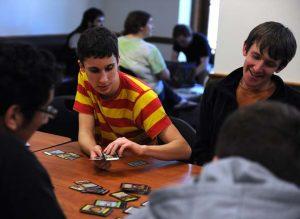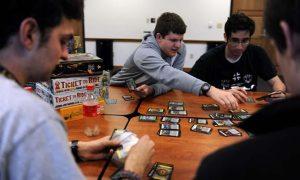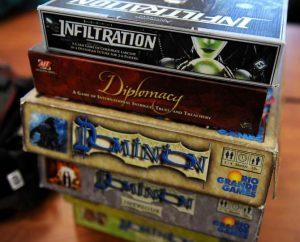A student organization all about board games probably sounds geekish — but that’s OK, according to members of the University’s Strategic Games Club.
Mark DiTusa, physics and chemistry freshman and the club’s president, said the group gets together every Friday night in East Laville Hall to play board games that require critical thinking and strategizing.
“Essentially, we bring a bunch of board games down and people come in and we play board games — and hilarity ensues, usually,” he said.
DiTusa said the club began last semester when he wanted to bring other Laville Honors House residents together to play games. The club charges a membership fee that is used to buy games that both encourage teamwork and fuel bitter rivalries, he said.
While the club does not play traditional games such as chess, the thought processes required for strategic board games are not all that different, DiTusa said.
“It’s all about knowing the game well and using the strategy to beat your opponents, to prove to them you are better than them in every way,” he said.
Some games force players to plan card combinations and plot moves on the fly and others are slow-paced and require deeper thinking, according to club member and physics freshman Andrew Olivier. However, carefully crafted strategies sometimes take a backseat to sheer fortune, he said.
“Sometimes we’ve played games where someone plays this ridiculous combo that’s obviously luck,” Olivier said. “Nobody could have possibly put that together, but it wins the game.”
Other laughs come from games such as Betrayal at House on the Hill, in which players explore a haunted house riddled with traps and omens. Club members have been chased by giant cats twice while playing that game, Olivier said.
Funny scenarios and the people involved are what English freshman Mallory Martinez said makes the club a good stress-reliever. Strategic games seem like something to make fun of, but the club integrates them into an enjoyable social experience, she said.
The club members reminded one another of game rules and joked at card choices while playing. Some occasionally suggested a move another player should make — perhaps trying to tilt the game in their favor.
That’s all part of the strategy these games require, Olivier said. Teamwork is key to some games, while others are more about being able to manipulate fellow players, he said.
“You see how well you really know your friends and if they’re willing to really be your friend, or if they’re going to backstab you in a few seconds — in good fun,” he said.
Especially when trying out a new game, it is important to know the other players’ abilities so everyone can be matched to an appropriate role, Olivier said.
Digital art freshman Cameron Bragg said the friendly competition is the best part of playing strategic games, though club meetings can become “verbally violent” when rivals engage in a game.
“If it’s against a few people in here that I know really well, my goal is to ruin the game for them or beat them incredibly badly,” Bragg said. “About half the time, I’m not playing to win. I’m just playing to beat somebody else.”
Dueling aside, the club offers an opportunity to get to know people and learn how to interact as part of a winning — or losing — strategy.
“Every game is different — different people, different cards, just different interactions,” DiTusa said. “It’s really cool to prove you are the quickest, best thinker or best player of that game because you know how the game works.”
“It’s all about knowing the game well and using the strategy to beat your opponents, to prove to them you are better than them in every way.”


